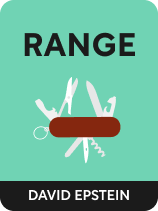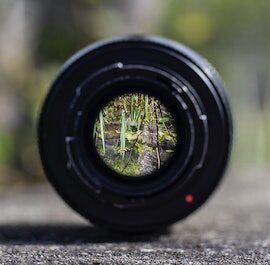

This article is an excerpt from the Shortform book guide to "Range" by David J. Epstein. Shortform has the world's best summaries and analyses of books you should be reading.
Like this article? Sign up for a free trial here .
Why should you be a generalist rather than becoming an expert in one specific thing? Why do specialists struggle so much in the modern world?
In his book Range, David Epstein explains that the modern world is too unpredictable to just rely on one skill. With such an unstable environment, you should be developing a range of skills instead of becoming an expert in one.
Continue reading to learn why you shouldn’t aim to become an expert.
Specialists Struggle in the Modern World
In his book Range, David Epstein says that you shouldn’t become an expert in a single field. Epstein argues that specialization is a far less reliable life strategy than we would expect, especially in recent years. This is true for a number of reasons, but the main reason is the unpredictability of the world.
The World Is Unpredictable
The main reason specialization isn’t ideal is that the world is far more unpredictable than we’d like to believe. Epstein distinguishes between “kind” and “wicked domains”—what we’ll call Stable and Unstable Environments.
Stable Environments are settings in which the ways to achieve success are easily understood and unchanging. Games with clearly defined rules such as basketball or billiards are Stable Environments, as are simple procedural jobs, like installing circuit boards on an assembly line. Unstable Environments are settings in which the ways to achieve success are unclear and constantly changing. Almost every environment in the “real world” is unstable to a certain degree.
Experience in Stable Environments will provide you with permanent value. For this reason, Epstein argues that specialization and deliberate practice are the most valuable in Stable Environments. Practicing your free throw a hundred times a day will make you better at basketball because the rules aren’t going to change.
Epstein warns that experience in Unstable Environments, on the other hand, may be worthless—or worse, it may harm your future performance. Dating, for instance, is an example of an Unstable Environment. Failed relationships often teach lessons that are inaccurate and/or unhelpful—someone who gets cheated on may come to the conclusion that no one will ever love them, when in reality they just weren’t with the right person. The rules of the environment are hidden and ill-defined, and as a result, experience doesn’t always result in improvement.
| The Ludic Fallacy Coined by author Nassim Nicholas Taleb in his book The Black Swan, the “Ludic Fallacy” refers to the misapplication of Stable Environment rules to an Unstable Environment. The word “Ludic” comes from the Latin word ludus, meaning “game,” as people falsely assume that the same strategies used to calculate probability within a game can be used in the real world. For example, Taleb explains that casinos calculate their real-world risk using the same strategies they use to calculate risk within a game like blackjack. They spend millions of dollars on high-tech security systems designed to prevent people from cheating, which, according to their calculations, profitably mitigates their risk. However, in the Unstable Environment of the real world, the largest losses never come from the places you’d expect, making the goal of accurately calculating risk impossible. Taleb visited a casino that lost $100 million dollars after one of its entertainers was mauled by his own tiger, had to pay a gargantuan fine to the IRS after an otherwise reliable employee forgot to send in certain tax forms for years, and had to pay the ransom for the kidnapping of the casino owner’s daughter. These losses cost 1,000 times more than the cheating losses predicted by their risk analysts. Statistical models like the one the casino used to calculate risk fail in Unstable Environments. Specialists’ path to success fails in much the same way—they fail to realize that their narrow, inflexible plans keep them from taking advantage of the unpredictable. |
Epstein argues that, because they assume that the world is a largely Stable Environment, followers of the traditional path to excellence strive for efficiency above all else. Specialists see skills and knowledge as a simple commodity—the more you practice, the more you “collect.” As a result, they assume that to reach the top of your field, all you need to do is accumulate skill as quickly as possible.
Generalists, on the other hand, recognize that we live in an unstable world—it’s impossible to perfectly predict what experience will be valuable to you. The experience that feels like a waste of time often pays off in ways you could never have imagined. Additionally, some inefficiency is necessary to perform at a world-class level. This leads us to one of Range’s main ideas—efficiency is a bad metric with which to judge your life. We’ll explore this in great detail in Part 2 of this guide.
| Stop Trying So Hard Optimizing your life around efficiency is not just ineffective—it can take a toll on your life satisfaction. On an episode of The Tim Ferriss Show podcast, entrepreneur Derek Sivers recounts the story of how he learned to be happier by not trying as hard. When he lived in Los Angeles, Sivers would bike down a long beachside path every day, pushing himself non-stop until he made it back home. Every day, he challenged himself to beat his record, as if he were training for a race, but he eventually got stuck at 43 minutes. He began to dread going on his daily bike ride, so one day he decided to take it easy and enjoy the sights and sounds of the beachside path. When he got home, he was dumbstruck to discover that the relaxed trip only took him 45 minutes. What had felt like Olympic-level training only shaved two minutes off his time. The moral Sivers gleaned from this experience was this: Trying to squeeze the most out of every possible second of your life often causes more stress than benefits. It’s possible to accomplish great things without making yourself miserable in the process. |

———End of Preview———
Like what you just read? Read the rest of the world's best book summary and analysis of David J. Epstein's "Range" at Shortform .
Here's what you'll find in our full Range summary :
- Why it's better to be proficient in a range of skills rather than becoming a specialist in one
- Why you're never “too late” to pursue something you’re interested in
- Why the nontraditional background of a generalist gives them an edge






